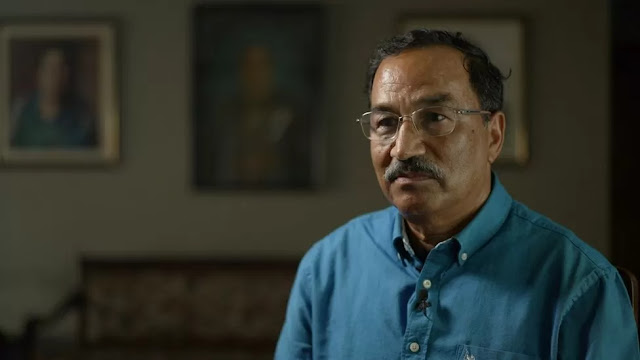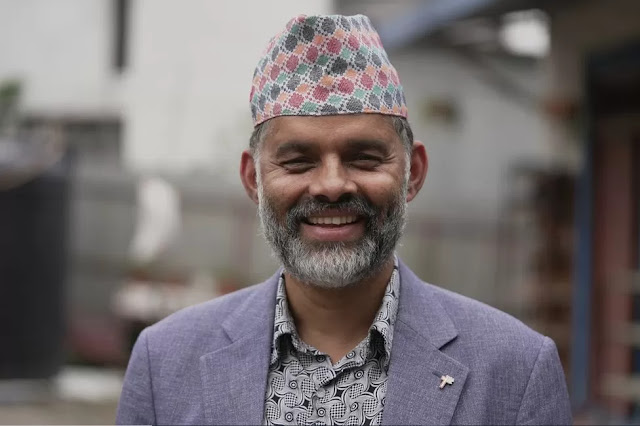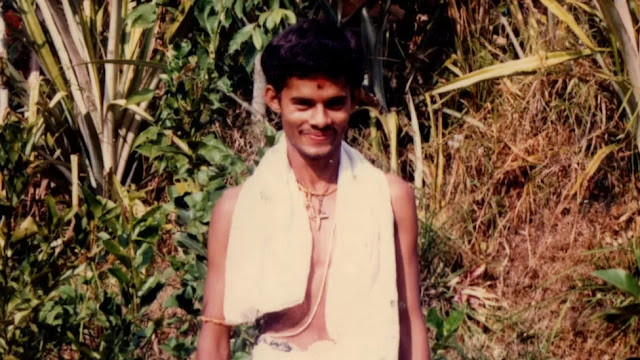Christian missionaries are targeting Buddha's birthplace in Nepal.
"Victory to Jesus," Korean pastor Pang Chang-in exclaims as he blesses a new church in the Himalayan village of Jharlang.
The newly converted congregation raises their hands in prayer. The majority are from the indigenous Tamang community, who previously practiced the Lama faith, an old spiritual practice.
Tamang people are "poor materially and spiritually," according to Pang.
"A miracle occurs, and the entire town converts," he claims.
Many South Korean missionaries, including Pang, have helped to develop one of the world's fastest-growing Christian communities in Nepal, a former Hindu monarchy and the birthplace of Lord Buddha.
The majority of the increase in Christian numbers in Nepal has come from members of the Dalit group, who have traditionally been at the bottom of the Hindu caste order, or from indigenous people.
They may believe in miracles, as Pang says, but conversion also provides an opportunity to escape poverty and injustice.
The new church in Jharlang is one of several that Pastor Pang has established in Nepal.
In his two decades in Nepal, Pang has overseen the establishment of approximately 70 churches, the majority of which are located in the Dhading district, two hours northwest of Kathmandu. He claims that the property is donated by the community and that Korean churches assist pay for the construction.
"Churches are being built in practically every mountain valley," Pang claims.
That may be an exaggeration, but there is no doubt that the number of churches in Nepal has increased dramatically in recent years. According to the most recent national Christian community survey statistics, there are presently 7,758 churches in the country, which is still largely Hindu.
And South Korea is driving much of this change. Only a few decades after it began deploying missionaries, it has grown to be one of the world's largest missionary-sending nations, with more than 22,000 deployed abroad, according to the Korean World Mission Association.
Korean missionaries have been recognized for actively going to, and often being evicted from the world's most difficult-to-evangelize corners.
Pang Chang-in and his wife Lee Jeong-hee have lived in Nepal for 20 years.
Nepal is officially a secular state, with religious freedom enshrined in the 2015 constitution.
However, under a 2018 anti-conversion law, anyone convicted of persuading someone to change their faith faces up to five years in prison.
"We are always dealing with the fear and nervousness we experience as a result of the anti-conversion law," Pang's wife, Lee Jeong-hee, says.
"However, we cannot stop the spread of the gospel because of this fear. We will not give up on saving souls."
The couple used to work in banking. Lee Jeong-hee believes it was her husband "who initially got God's calling [and] shortly after God urged us to move to Nepal".
When they came in 2003, the throne was still held by a Hindu royal family.
"I was astounded to see so many idols being adored," Pang recalls. "I believed Nepal desperately needed the gospel."
Following a decade of civil conflict, the 240-year-old monarchy was removed five years later, and a coalition government took power, declaring Nepal a secular republic in 2008.
"This was the beginning of the golden period of missionary service," claims Pang.
He and his wife are part of a group of about 300 Korean missionary families in Nepal at the moment.
In Kathmandu, the group is centered on a Korean church in the Bhaisepati neighborhood.
None of the members of the congregation are officially missionaries. They are in the country on business or study visas. Some own and operate restaurants, while others are recognized charities.
Pang and his wife were the only ones willing to communicate honestly throughout our weeks with the Korean missionary community. "I'm willing to share what God is doing in Nepal," Pang says.
He does not consider their work to be illegal because they are not overtly proselytizing or baptizing.
"Our missionary effort is about more than just us. The work is being done by God. "We want to demonstrate how God works through us to perform miracles in Nepal," he says.
The Christian community accounts for fewer than 2% of Nepal's population (Hindus account for roughly 80% and Buddhists for 9%), although census figures show that it is growing.
Nepal had no Christians in 1951 and only 458 in 1961. However, by 2011, there were about 376,000 residents, and the most recent census estimates the population to be around 545,000.
Kamal Thapa wants the anti-lobbying law to be enforced and Nepal to be re-established as a Hindu state.
"It's taking off like wildfire. It is a matter of cultural identity. "The fabric of national unity is at peril," says Kamal Thapa, a former deputy prime minister.
He regards the Korean missionary work as a "planned attack on the cultural identity of the country".
"Missionaries are operating behind the scenes, exploiting the poor and stupid, and persuading them to convert to Christianity.
"This is not an issue of religious liberty. "This is an example of religious exploitation," he argues.
He is campaigning for Nepal to become a Hindu state again. He supported the passage of the anti-conversion legislation and would want to see it implemented.
Only Christians have been charged under the statute, but no one has been found guilty. Cases have been dismissed for lack of evidence, or defendants have been acquitted on appeal.
According to the Nepal Christian Society, there are now five active instances. In December, charges against four Koreans, including two nuns, were dismissed.
"Conversion should come from Jesus," Pastor Dilli Ram Paudel believes.
Pastor Dilli Ram Paudel, the leader of the Nepal Christian Society, was among the first to be detained under the law.
In April 2018, he was accused of bribing people to convert, which he categorically rejects. Charges against him were later dismissed as well.
"We're accused of converting individuals, but we don't have that authority," he explains.
"If it was, I'd be able to convert my mother. I may give her money and pray for her, but I can't convert her since conversion must come from Jesus."
He was ordained as a Hindu priest "like 21 generations before me" and comes from a devoted Hindu family. In his twenties, he moved to Korea to study, and it was there that he was introduced to Christianity.
"I was alone and friendless," he recounts, "and then some folks brought me a Korean bible in the Nepali language. They discovered the Nepali language one."
He read it in one night and "discovered my creator".
"Does it appear amusing and unreal? "Well, that happened to me," he says, smiling.
When Dilli Ram Paudel was younger, he was a Hindu priest.
When he was younger, Dilli Ram Paudel worked as a Hindu priest.
When he returned, he was shunned by his family. "They thought Christianity was a foreign faith [and] that I was insane, that I had lost my memories," he claims.
It took some time for him to be reintegrated into his family and community.
Every year, almost 2,000 Nepali students study in Korea. According to a Korean missionary who spoke on the condition of anonymity, they attempt to engage with local churches in Korea.
"Doing evangelistic work in Nepal is difficult. So we have other options," he argues. "Our aim is to convert whatever souls we can, as Pastor Dilli Ram Paudel was a Hindu priest when he was younger, thus we must remain hidden."
Pang and his wife assist in the operation of a seminary school in Kathmandu. There are now about 50 students studying. Korean church donors finance the majority of the cost of their education and board.
One of them, Sapana, 22, is from the isolated Tamang village of Singing.
"My father despised churchgoers because he believed we should not abandon our traditions," she explains.
"I will go to new areas and convey the gospel of Jesus," Sapana adds.
When she was very ill, her uncle brought her to Christianity. She states that after converting, she was healed. "I wanted to live my life for Jesus. "I was finally liked," she says.
For Korean missionaries like Pang Chang-in, remote villages like hers is the new frontier.
"The anti-conversion law feels considerably more genuine in the cities. "However, there are fewer eyes looking in the countryside," explains Pang.
Sapana completed her seminary studies late last year. She now hopes to return to her mountain hamlet "to steadily grow and push youth to be part of the church".
"I will journey to new areas and share Jesus' message with those who have never heard it before."
Pang Chang-in agrees the spread of the gospel "may clash with current religion and society".
However, he believes that "cultural shock" is inescapable.
Rajan Parajuli and Rama Parajuli contributed reporting.









No comments